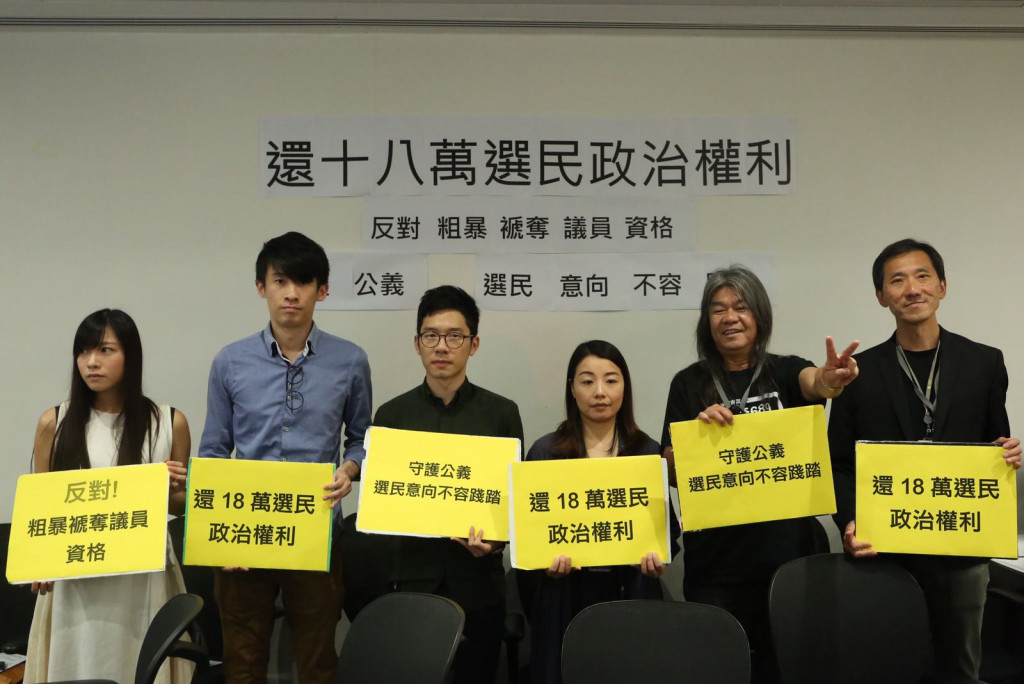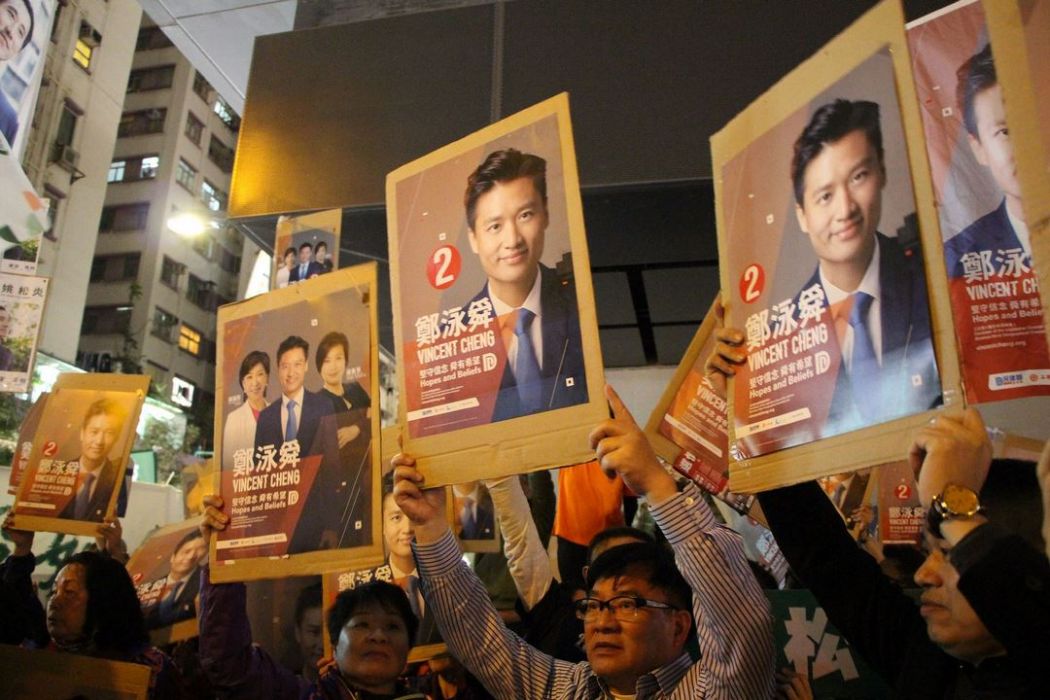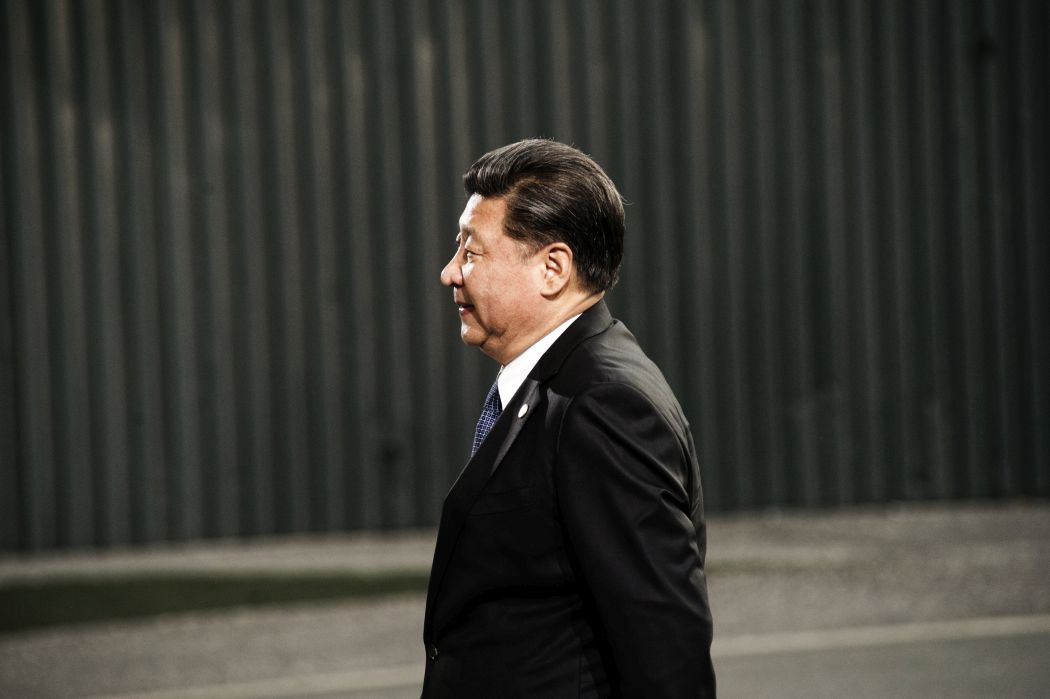The post-Occupy sequence did not hold. That sequence linked Hong Kong voters with the pro-democracy activists who shut down major Hong Kong thoroughfares for over two months in a show of political defiance against Beijing.
The grievance then, in 2014, was the central government’s refusal to grant long-promised universal suffrage elections for Hong Kong’s Chief Executives and its Legislative Council on any terms other than Beijing’s own.
Rather than the immediate crackdown many expected at the time, Beijing has responded in slow motion with a series of mandates and ultimatums that in turn produced the oath-taking saga plus the disqualification of six Legislative Councilors and a number of aspiring candidates as well.

There have been several post-Occupy elections, of varying kinds, with many candidates demonstrating the same defiant post-Occupy ideals, to the same post-Occupy effect.
Conventional wisdom, even among Occupy’s champions, initially held that public opinion had turned against them. As the street blockades dragged on in 2014, fewer and fewer Hongkongers seemed inclined to contradict the government line about public opinion being firmly negative due to the city-wide disruption the occupation caused.
Yet each time the public was given a choice, beginning with a District Councils election in late 2015, candidates who conveyed the Occupy spirit did “better than expected.”
So much so, that by the time the Legislative Council election rolled around a year later, Occupy’s champions had regained their confidence. According to the official count, 15 newly-elected councillors added some Occupy spirit to the October 2016 swearing-in ceremony by embellishing their oaths-of-office with pro-democracy slogans.
They accounted for half of the pro-democracy councillors elected that year in a 70-seat assembly. And they wanted to give voice to voters’ resentment over unfulfilled electoral reform promises as well as Beijing’s increasing presence in Hong Kong political life.

By then the frustration and resentment was also evolving in new directions with names like Hong Kong independence and self-determination.
After Beijing’s ultimatum on solemn word-for-word oath-taking in November 2016, and lengthy local court proceedings thereafter, six of those 15 legislators were retroactively and selectively targeted for prosecution by the Hong Kong government and disqualified by Hong Kong’s courts.
Two of the six are still waiting for final appeals court judgements. Four decided not to appeal and were replaced in the special by-election held last Sunday, March 11.
Voters choose
On March 11, however, the spell was broken. The post-Occupy effect evaporated, and the anticipated sympathy vote for the disqualifications did not materialize.
On the face of it, Beijing and the Hong Kong government have thus scored a major victory by winning approval — at the ballot box — for their political removal strategy targeting all the most promising members of the post-Occupy generation.
Until voter turnouts and profiles are known, the reasons must remain in the realm of speculation. But nothing is more definitive than an election result.
Of the four pro-democracy seats lost to the oath-taking saga, democratic replacements succeeded in winning back only two in the March 11 by-election. Of the four, given the political configuration of the constituency, one loss was preordained by the government’s selective prosecution of its occupant and therefore doesn’t count in the political equation.
But most important for future democracy camp reference: this time its voters did not perform “better than expected.”
The election was billed informally and rhetorically as a referendum on the post-Occupy generation of legislators. Democrats called on voters to oppose the disqualifications and elect like-minded candidates to replace them.

Their pro-establishment pro-Beijing opponents called on voters to prevent such like-minded candidates from ever returning to the Legislative Council, and voters responded by failing to give those candidates a ringing endorsement.
The four seats included three elected directly by voters in the geographical constituencies: Hong Kong Island, Kowloon West, and New Territories East. The fourth seat belonged to the indirectly-elected small-circle functional constituency for architects and surveyors.
Voter turnout for the geographical seats was down significantly compared with the full Legislative Council election in 2016: 58% then in the geographical constituencies, compared with only 43% last Sunday.
One reason for the lower turnout, of course, was far fewer candidates and therefore, less intense voter mobilization efforts.
Voter turnout in itself need not have been a deciding factor. But what caused dismay in the democratic camp and evoked celebrations among their opponents was how well the latter did in narrowing democrats’ traditional voter advantage across the board.
Democrats have always enjoyed a larger support base, but their small parties are fractious, and the voters are similarly fragmented. Getting them out to vote is always a worry especially because they are no match for the pro-Beijing voter-mobilization teams that are now always on call at election time for their candidates and allies.

These disciplined forces of the left include 36,000 members of the main pro-Beijing political party, the Democratic Alliance for the Betterment and Progress of Hong Kong (DAB) and the estimated 400,000 affiliated members of the Federation of Trade Unions (FTU). No pro-democracy party can boast even a thousand members.
Also, this was a first-past-the-post election with only one seat being contested in each of the three geographical constituencies. Hence proportional representation did not cut into democrats’ vote share in the manner of a regular election.
That presumably is why democratic candidates have never lost in such single-seat by-elections… until now. The pro-democracy candidate in Kowloon West lost by 2,000 votes.
Results for the main contenders: Democrat (D), Beijing-Establishment (BE)
Hong Kong Island:
Au Nok-hin (D), 137,181 votes
Judy Chan Ka-pui (BE), 127,634 votes
Kowloon West:
Edward Yiu Chung-yim (D), 105,060 votes
Vincent Cheng Wing-shun (BE), 107,479 votes
New Territories East:
Gary Fan Kwok-wai (D), 183,762 votes
Bill Tang Ka-piu (BE), 152,904 votes
Functional Constituency, architects, surveyors:
Paul Zimmerman (D), 2,345 votes
Tony Tse Wai-chuen (BE), 2,929 votes.
Campaign Notes
One major result of this by-election was seen at the beginning, not the end. Faction-ridden as they have always been, the disqualification crisis finally brought democrats together.
Joseph Cheng Yu-shek began his self-appointed, often thankless, candidate-coordination effort in 2003. He finally saw his pet project bear fruit with the preliminary straw poll in January.
All the main pro-democracy parties took part, all agreed to campaign for the winners afterward, and all did. Unfortunately, Cheng still has his work cut out for him. Because of the generation gap that has opened up, success may continue to elude him.
Younger generation localist pro-independence enthusiasts were the spoilers in New Territories East, where they reportedly organized a blank-vote protest against conventional democratic politician Gary Fan.
But despite the good start, a new threat erupted almost immediately. All had agreed that Agnes Chow Ting should stand as the candidate to contest the Hong Kong Island seat lost to the oath-taking saga by her party-mate Nathan Law.
But the 21-year-old Chow never reached the starting line. Her candidacy was officially blocked because of her party’s call for self-determination, which Beijing insists is identical to independence.
Again by common consent, the replacement candidate was 30-year-old Au Nok-hin. He would probably have been disqualified as well were it not for the uproar caused by Agnes Chow’s swift downgrade.
Au is a 30-year-old elected member of one of Hong Kong’s 18 District Councils so he already has some experience in grassroots Hong Kong politics. He is also a career activist and arguably more radical than Agnes Chow.

Au is among the group around one-time moderate academic Brian Fong Chi-hang, who gave up his moderation after Occupy. He said Hong Kong should write its own Basic Law because the governing document China had promulgated for post-1997 Hong Kong was turning out to be full of promises Beijing would not honour.
There were immediate challenges to Au’s candidacy and moves began to disqualify him even before he was elected. They can come from election petitions, which are allowed, sponsored by anyone who voted in his constituency.
Pro-Beijing partisans there quickly produced a photograph of him burning a copy of the Basic Law during a protest demonstration in 2016.
The photograph was used by his pro-establishment challenger Judy Chan to challenge his patriotism during a TV debate and was published almost daily in pro-Beijing newspapers, where voters were urged to begin disqualification proceedings against him if he was elected.
He was, and they did. Their protest petition was submitted on March 13.
Judy Chan is a protégé of Regina Ip, democrats’ nemesis since 2003 when she presided over the government’s effort to pass its Article 23 national security legislation.

Chan’s election website featured a page titled “The Seven Deadly Sins of Au Nok-hin,” dating back to his middle school days and calculated to set patriotic blood boiling.
Also noteworthy from Chan’s campaign was her party-line defence of President Xi Jinping. She said amending constitutions, as he has done, is a common occurrence and ending term limits is good for continuity in policy implementation. China is different from Western countries. More political power is good for development.
The race in Kowloon West featured middle-aged academic Edward Yiu Chung-yim. His major handicap was lack of grassroots ties in neighbourhoods there plus his disqualification as a legislator in the oath-taking saga.
Edward Yiu’s political origins were actually in the Functional Constituencies, architects and surveyors sector, and his disqualification for oath-taking embellishments is the case that raised the most serious questions about the government’s decision to selectively prosecute some oath-takers but not others.
The government’s move in prosecuting him seemed related not so much to his oath-taking as to the configuration of his original constituency.
Flipping that seat beck into the pro-establishment column was a foregone conclusion once he was no longer in it, and his oath was no more creative than others who were not prosecuted.
Architects and surveyors are usually pro-establishment, but the pro-government side fielded two candidates in the 2016 election, thereby splitting their vote and allowing Edward Yiu to win.

Edward Yiu’s selective prosecution was a neat sleight-of-hand that passed unnoticed in the court judgement approving the government’s charge about oath taking.
But the architects and surveyors got the point easily enough and did not repeat their 2016 mistake … allowing the “rightful” occupant to regain his seat.
The Kowloon West seat was originally won, in 2016, by Youngspiration candidate Yau Wai-ching. She was one of the first two legislators-elect whose disqualifying oath-taking embellishments were the most extreme.
Democrats had originally hoped to reinstate the other four in the by-elections to follow since none of the court judgements had preempted that possibility.
Ultimately the idea worked out only for Edward Yiu, who was the preferred choice in the straw poll for Kowloon West. But even so the prospect was risky because it meant parachuting him into a constituency where, as an academic and Functional Constituency politician, he was without the grassroots support base needed to mobilise voters.
His main challenger was the DAB’s Vincent Cheng, who had served for many years as a locally-based District Councillor.

Ming Pao Daily provided some useful data to illustrate the challenge Edward Yiu faced. The constituency’s three directly-elected District Councils all have pro-establishment majorities that have long since blanketed neighbourhoods with well-funded community service help centres.
The proportion of pro-establishment to pro-democracy councillors in two of the Kowloon West District Councils is 16:3 and 20:4. The proportion is close, 12:11, in only one of the councils.
Still, Edward Yiu’s hopes lay in the overall vote count between pro-establishment and pro-democracy voters. In the last, 2016, Legislative Council election the proportion was 37%: 63%. Except that the latter included all kinds of democrats from the most indeterminate moderates to Youngspiration and Raymond “Mad Dog” Wong, whose supporters were not likely to be enthralled with the candidacy of Edward Yiu.
The political configuration in New Territories East was almost as problematic. Its empty seat had belonged to Youngspiration’s Baggio Leung, one of the two whose oaths were most extreme.
This contituency includes the Chinese University, which is a pro-democracy stronghold and hotbed of “localist” insurgents in the Youngspriation mould. They have given up the perspective of elders who put their faith in the promises of the Basic Law.
The January straw poll tapped a candidate awkwardly positioned somewhere between the two orientations, which is to say Gary Fan Kwok-wai.
He had made a lot of enemies in New Territories East. These include both older and younger generation democrats. In 2010, he was a rebel himself, within the Democratic Party, which he quit over the government’s controversial Legislative Council reform package.
Fan then formed his own group, Neo-Democrats, which has gone on to win several District Council seats in the constituency. But Neo-Democrats are not necessarily good neighbours.

They pursued their own factional interests to the detriment of many others during the 2016 Legislative Council election campaign. Some of the others reportedly returned the favour, by boycotting his campaign and casting blank ballots last Sunday … despite the larger dangers the democracy camp now faces.
Urban designer Paul Zimmerman deserves credit for agreeing to serve as democrats’ substitute candidate in a contest (Functional Constituency: architects, surveyors) he was bound to lose.
Zimmerman wants to be Hong Kong’s first post-1997 non-Chinese Legislative Councilor. He even gave up his Dutch nationality and became a Chinese citizen in 2012 just to qualify.
He also gave up his membership in the Civic Party a few years ago after they refused to risk losing a seat by allowing him to stand as their candidate. Still, he didn’t do too badly and is laying the groundwork for future election runs.
In the shadow of the National People’s Congress
The huge banner draped over Lion Rock just before Election Day reminded democrats of their reason to come out: “Vote to Oppose DQ.” Lion Rock has become a symbol of grassroots’ perseverance in adversity and if ever there was a time for democrats to rally in the face of political adversity it is now.
By DQ – code word for disqualifying – so many rising stars from the movement’s youngest generation, the Hong Kong government and judiciary, acting at Beijing’s behest, have sought to force compliance with Beijing’s skillfully drawn interpretations of the original 1997 promises.
Actually, Beijing is correct in its constant protestations about keeping to the letter of the “one-country, two-systems” governing principle.
If Beijing really aimed to act in the “one system” mainland way, all of Hong Kong’s young stars would be jailed for provoking quarrels and challenging state power, and none would ever be allowed to contest an election again.

Instead, Beijing, acting through the Hong Kong system, has only overseen their removal from the Legislative Council, which quickly acted to exploit their absence by amending council rules to curb what little power legislators have, thereby achieving a slow reversion to the council’s old colonial-style officially-managed formalities.
The question now for Hong Kong’s democracy movement is where to go from here? The officially-managed clampdown inspired a degree of cooperation within the faction-ridden movement that had so far eluded all efforts to overcome its debilitating effects. But instead of applauding the achievement, their voters let them down.
Struggling to keep the original 1997 dream alive will become an exercise in futility, one the younger generation has already abandoned. Whether energies can be sustained for a holding operation to save what remains of Hong Kong rights and freedoms remains to be seen.
The way forward seems to be marked by only two choices reflected in the slogans of the two main Hong Kong Island contenders… neither of which seem likely to inspire much enthusiasm among pro-democracy voters.
From democrat Au Nok-hin, already facing a voter disqualification petition: “Hong Kongers Don’t Lose Heart. Stand Firm for Democracy.” And from Judy Chan: “Safeguard the Rule of Law. Bring Reason Back to Politics.”

Behind her stood the entire pro-Beijing patriotic community. So loyal are its members that Hong Kong’s delegation to the National People’s Congress meeting for its annual session in Beijing cancelled their plan to fly home for the March 11 poll. Instead, they announced that they wanted to remain in Beijing to show support for President Xi Jinping.
By coincidence, the congress vote formally legitimizing his amendments to China’s constitution fell on the same day as Hong Kong’s by-election. One of the amendments removes two-term time limits for China’s presidents, thereby allowing Xi Jinping to remain President for life.
The result in Beijing was: 2,958 votes in favor, two against, three abstentions, and one invalid vote, with 16 absentees.
